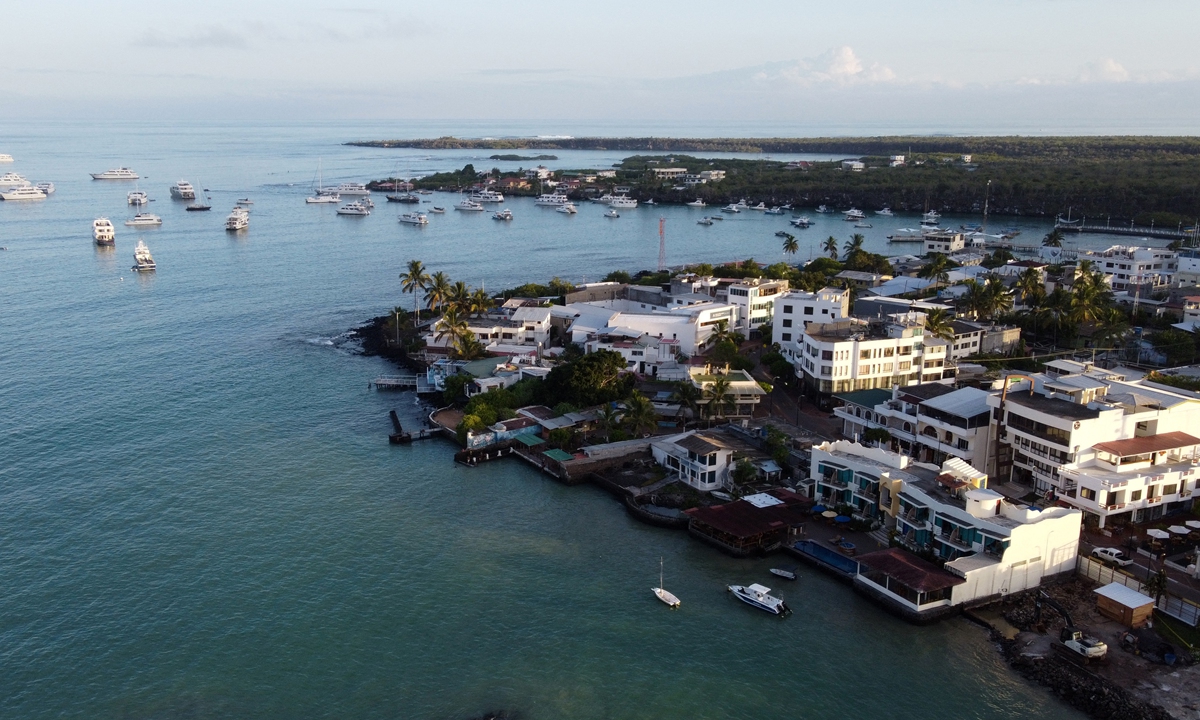
Boats dock off the coast of Santa Cruz Island in the Galapagos, Ecuador on April 15. Bottom: People enjoy drinks at a restaurant in Puerto Ayora, Santa Cruz Island, Ecuador. Photos: AFP
Indigenous groups in Ecuador blocked some highways with mounds of earth and burning tires on Monday, kicking off what they said will be an indefinite protest against the economic policies of conservative President Guillermo Lasso.
Indigenous and social organizations are asking Lasso for 10 concessions, including freezing gasoline costs at a lower price, stopping additional oil and mining development, and extending deadlines for small farmers to pay off debts.
Roads were blocked in at least 16 provinces throughout the country during the day, indigenous organization CONAIE wrote on Twitter, while the government warned of increased violence in protests in a number of areas, adding that demonstrations were smaller than expected.
Two marches took place in capital Quito, where police and students clashed near a school.
"We have had to resort to resistance in view of the national government putting in place more and more policies of death, which don't allow us to sustain our small economies," Leonidas Iza, head of CONAIE, told journalists.
"Mr President, respond to the people on the most urgent, necessary and painful issues," Iza said as he stood with dozens of other indigenous people on a highway south of Quito, urging Lasso not to allow the International Monetary Fund to "impose" policy.
Lasso froze prices for the most-used gasoline and for diesel at higher rates than had been in place before he took office in October 2021, sparking protests that ended when the government opened talks with indigenous groups and others. The talks have continued since but indigenous leaders say the government is not listening to their concerns.
The South American country has agreed to financing of $6.5 billion with the IMF in a deal that finishes in 2022.
Reuters




